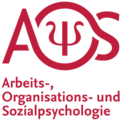Professional Experience
Since 03/2019: Research associate at Department of Industrial/Organizational and Socical Psychology, TU Braunschweig
04/2015-02/2019: Research associate at Institute of Psychology, University of Hanover
02/2015-03/2015: Research assistant at Hector-Institute of Education Science and Psychology, University of Tübingen
04/2011-10/2011: Research associate at Department of Social Psychology, Saarland University
University Education
03/2017: Ph.D. (Dr. rer. nat), Hector-Institute of Education Science and Psychology, University of Tübingen
- Dissertation thesis: „Elementary School Teachers’ Beliefs and Judgments About Students’ Giftedness“
10/2011-01/2015: Ph.D. scholarship from the Ministry of Science, Research, and the Arts (Baden-Württemberg, Germany), Hector-Institute of Education Science and Psychology, University of Tübingen
10/2004-03/2011: Psychology (Diploma), Saarland University
Memberships
Society for Empirical Educational Research (GEBF)
